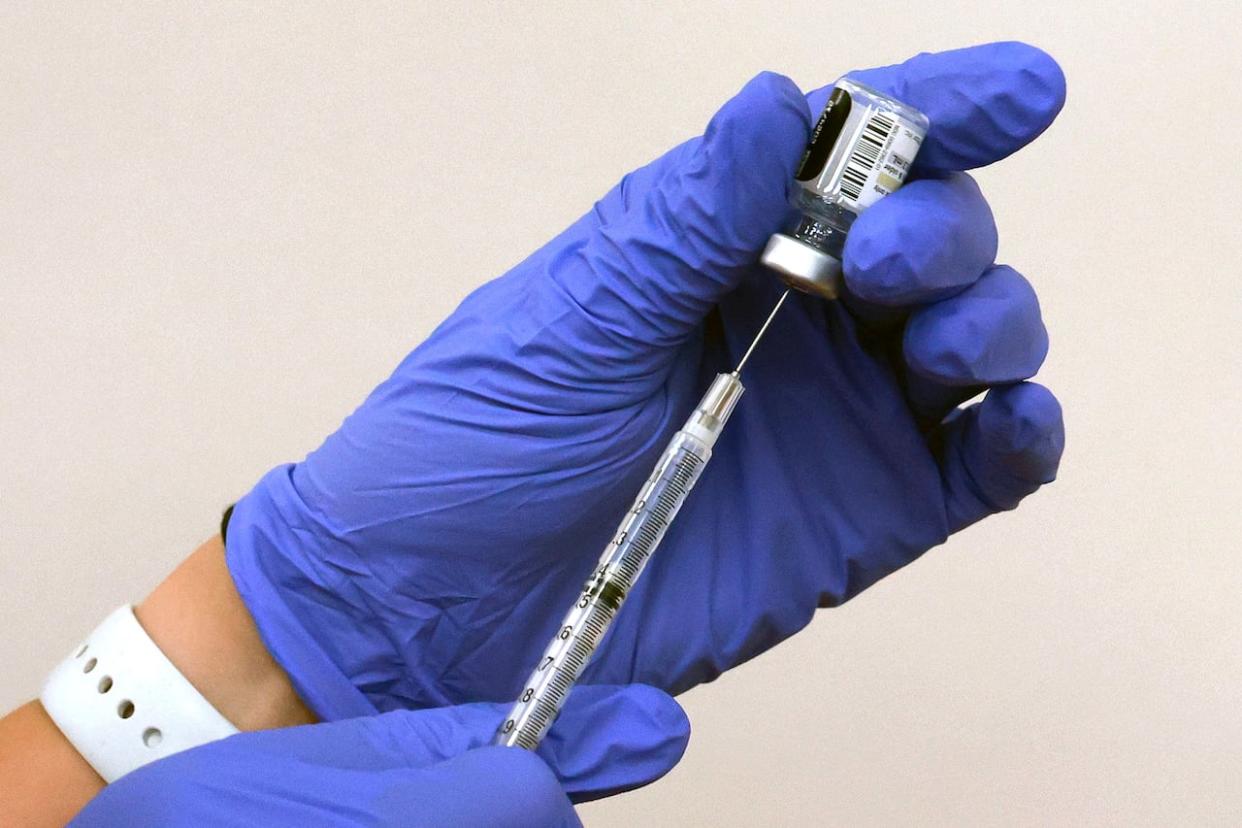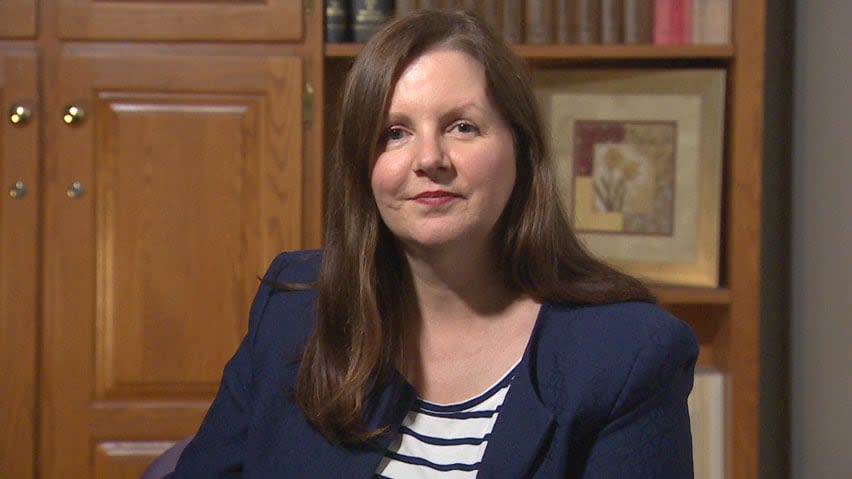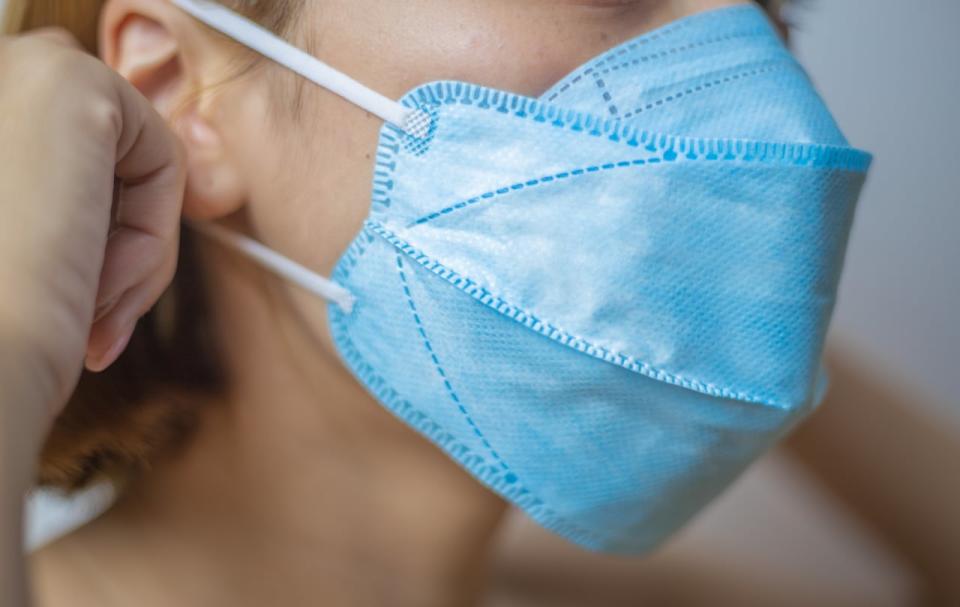New COVID-19 vaccines available Oct. 16 in N.B., province announces

New Brunswickers can start booking appointments on Friday for an updated COVID-19 vaccine that's designed to target the circulating Omicron XBB.1.5 subvariant, as well as their annual flu shot, the Department of Health has announced.
The new Moderna COVID vaccines will be available to everyone aged six months and older starting Oct. 16, as long as it's been at least six months since their last dose or COVID infection.
The new Pfizer-BioNTech COVID vaccines are expected to arrive in late October or early November. it says.
"As we know COVID-19 continues to circulate in New Brunswick, and across the globe, we are asking New Brunswickers to stay up to date with their vaccines," Dr. Jennifer Russell, the province's chief medical officer of health, said in a statement.
"In New Brunswick, nearly all circulating COVID strains are of the XBB family, so the updated vaccines are designed to offer improved protection compared to previous COVID vaccines."

Dr. Jennifer Russell, the province's chief medical officer of health, said COVID activity has 'increased slightly' in recent weeks, and getting an updated vaccine will help reduce the risk of severe illness. (Ed Hunter/CBC)
Public Health strongly recommends an updated vaccine for the following groups:
People aged 65 and older.
People who are pregnant.
People with underlying medical conditions that place them at higher risk of COVID complications, including those who are immunocompromised.
People who live in a long-term care facility, including nursing homes, special care homes, or adult residential facilities.
People who work in health care, particularly those who have direct contact with patients and other caregivers.
People who are of First Nations, Métis or Inuit descent.
People can book an appointment online or by calling or visiting a participating pharmacy.
Low vaccine uptake a concern
Dr. Yves Léger, the province's acting deputy chief medical officer of health, said COVID vaccine uptake has dropped over time and that's a concern.
"COVID is going to be here with us for the long haul, and vaccines should be part of that suite of tools that we use to protect ourselves," he told reporters during a video call Thursday afternoon.
Since April 4, only about 28,000 doses of COVID-19 vaccines have been administered across the province.

Dr. Yves Léger, the province's acting deputy chief medical officer of health, said vaccines offer the best protection against COVID-19. (Government of New Brunswick/Zoom)
Asked what Public Health plans to do differently to increase uptake, Léger said he thinks it's important to explain the value of vaccines.
"While vaccines are very good at preventing infection and are even better at keeping people outside of hospitals, we know that that protection does start to wane with time," he said.
So even if people got their initial doses, it's important they get a new shot to ensure that protection remains strong, Léger stressed.
Cases expected to rise
The province does not have any modelling projections for COVID-19 or flu case counts, hospitalizations and deaths this respiratory season, Léger told CBC.
But he noted COVID numbers have already started to rise, and he expects that will continue.
"We certainly do expect to see some increase in COVID activity this fall, potentially spanning into the winter months. We do also expect to see influenza, of course, during this respiratory season.
"And if we look to the experience of Australia, which is often a good indicator of what we may see here … it should start earlier but will likely not peak as high, but be a bit more drawn out than what [we saw] last year."
The 2022-23 flu season in New Brunswick was the deadliest in at least a decade, with 69 deaths reported and 886 hospitalizations.
One lab-confirmed flu case has been reported so far this season, according to Wednesday's Respiratory Watch report.
COVID activity is described as "moderate," with two new COVID deaths in hospitals recorded between Sept. 17 and Sept. 23, and 58 hospitalizations — an increase for the third straight week.
Masking encouraged
Public Health has no new guidance regarding masks, which haven't been mandatory since March 2022, said Léger.
But he did clarify people are encouraged to wear them in public.

Masking is especially important during the respiratory season, when COVID and flu cases are expected to rise, particularly for people who are older or have underlying medical conditions and are at risk of of severe complications if they are infected, said Léger. (narongpon chaibot/Shutterstock)
"We certainly continue to encourage New Brunswickers to carry masks with them and wear them. Masks are effective, there's certainly no doubt about that."
Last month, Canada's chief medical health officer, Dr. Theresa Tam, encouraged a return to masking.
Facing criticism
The launch of the vaccine campaign comes after the province has faced criticism in recent months from virus experts and opposition health critics over a lack of information about its fall plans.
In July, the National Advisory Committee on Immunization strongly recommended that Canadians get another shot this fall, if it's been at least six months since their last dose or infection.
Health Canada approved Moderna's new vaccine on Sept. 12 and Pfizer's on Sept. 28. Federal officials aren't calling the shots "boosters." Instead, they view the updated options much like the annual flu shot.
Léger said launching a vaccination campaign is complex and some factors were outside the province's control. He noted the new vaccines were only recently approved and the province was waiting to find out how many doses it would get.
Léger also defended Russell's ongoing lack of availability to the media and the public. Her schedule is very busy, he said. That's why he was the one fielding questions from reporters. Russell wasn't available Thursday and Public Health wanted to get the information out as soon as possible, he said.
Book flu shot at same time
New Brunswickers are also encouraged to book appointments for their flu shot and pneumococcal vaccine, which can be administered at the same time as the COVID vaccine.
The free flu shot is recommended for all New Brunswickers aged six months and older, with a higher dose available for those 65 or older to provide better protection.
Public Health recommends New Brunswickers aged 65 and older receive one dose of pneumococcal vaccine, saying it protects against bacteria that can cause serious and life-threatening infections, such as pneumonia, ear infections and meningitis.


